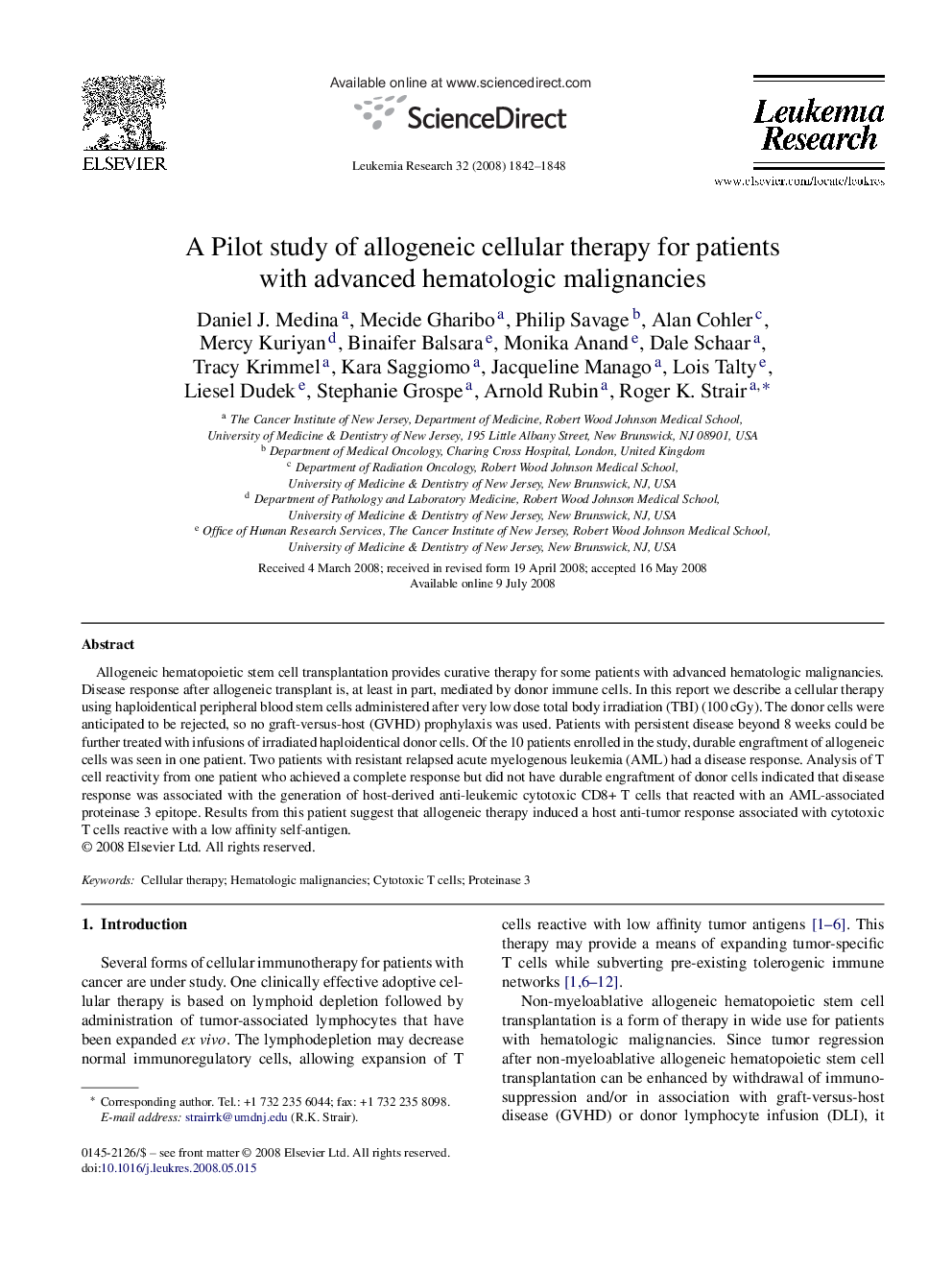| Article ID | Journal | Published Year | Pages | File Type |
|---|---|---|---|---|
| 2138839 | Leukemia Research | 2008 | 7 Pages |
Allogeneic hematopoietic stem cell transplantation provides curative therapy for some patients with advanced hematologic malignancies. Disease response after allogeneic transplant is, at least in part, mediated by donor immune cells. In this report we describe a cellular therapy using haploidentical peripheral blood stem cells administered after very low dose total body irradiation (TBI) (100 cGy). The donor cells were anticipated to be rejected, so no graft-versus-host (GVHD) prophylaxis was used. Patients with persistent disease beyond 8 weeks could be further treated with infusions of irradiated haploidentical donor cells. Of the 10 patients enrolled in the study, durable engraftment of allogeneic cells was seen in one patient. Two patients with resistant relapsed acute myelogenous leukemia (AML) had a disease response. Analysis of T cell reactivity from one patient who achieved a complete response but did not have durable engraftment of donor cells indicated that disease response was associated with the generation of host-derived anti-leukemic cytotoxic CD8+ T cells that reacted with an AML-associated proteinase 3 epitope. Results from this patient suggest that allogeneic therapy induced a host anti-tumor response associated with cytotoxic T cells reactive with a low affinity self-antigen.
